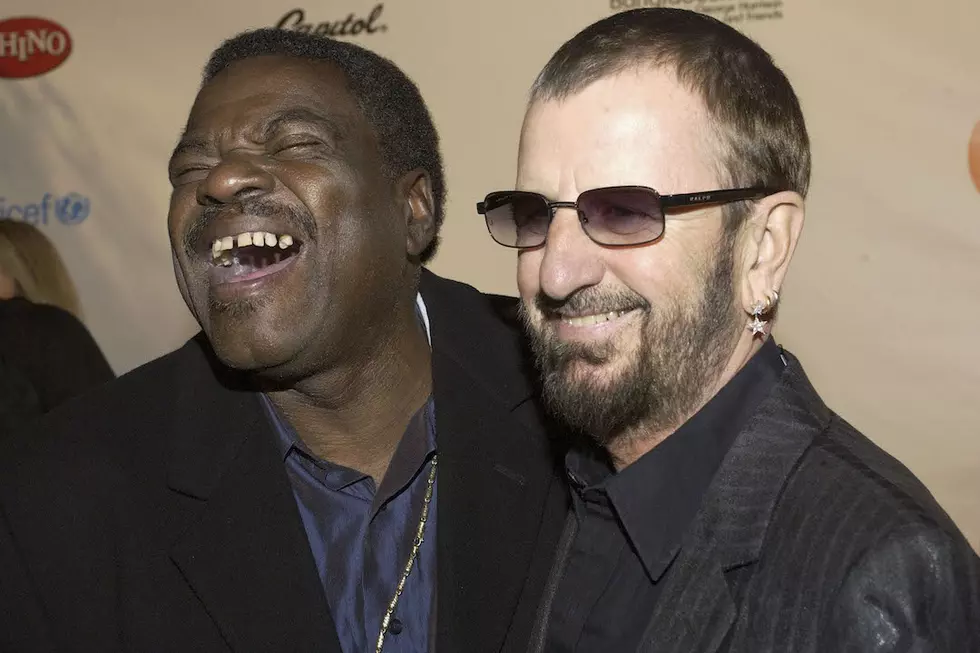
How Billy Preston Helped the Beatles Play Nice on ‘Get Back’
When George Harrison, who had briefly quit the Beatles in early 1969, decided to return to the band, he brought with him a secret weapon: keyboardist Billy Preston.
Harrison’s departure was the result of infighting and strained tensions within the Beatles. The bandmates were infamously at each other’s throats by this point, with starkly differing viewpoints on how the band was to proceed.
During his break from the group, Harrison caught a performance by Ray Charles in London. Onstage that night was Preston, whom Harrison and his fellow Beatles had befriended during their years in Hamburg. Excited to see his old pal, Harrison sent Preston a message inviting him to join the Beatles in the studio.
This wasn’t the first time a non-Beatle had joined the Fabs' ranks. Harrison had used the same method during the contentious White Album sessions, having Eric Clapton join the group for “White My Guitar Gently Weeps.”
READ MORE: Revisiting the Beatles' Scattered 'Magical Mystery Tour'
“It’s interesting to see how nicely people behave when you bring a guest in because they don’t want everybody to know they’re so bitchy,” Harrison explained in the book The Beatles: Anthology. "Suddenly everybody’s on their best behavior.” Preston arrived at Apple studios on Jan. 22, just as the Beatles were working on their song “Get Back.” After being welcomed by the group, the keyboardist was quickly invited to contribute.
“He got on the electric piano, and straight away there was 100 percent improvement in the vibe in the room,” Harrison recalled. “Having this fifth person was just enough to cut the ice that we’d created among ourselves. Billy didn’t know all the politics and the games that had been going on, so in his innocence, he got stuck in and gave an extra little kick to the band. Everybody was happier to have somebody else playing and it made what we were doing more enjoyable. We all played better, and it was a great session.”
Listen to the Beatles' 'Get Back'
Preston’s positive energy was contagious, and his influence wasn’t lost on the band’s onlookers. Producer George Martin asserted that the keyboardist “helped to lubricate the friction” among the Beatles, while the band’s press officer, Derek Taylor, remarked that Preston helped create a “very good atmosphere” in the studio.
How Did the Beatles Feel About Billy Preston?
Still, not everyone was eager to anoint the keyboardist as the band’s savior. Although Ringo Starr agreed that Preston's “Get Back” performance was great, he was careful to avoid giving the musician too much credit. “I don’t think Billy Preston made us behave a bit better,” the drummer opined in Anthology, instead insinuating that the quality of the song helped get the Beatles refocused. “As always, when you’re working on something good - the bullshit went out of the window and we got back to doing what we did really well.”
Paul McCartney agreed that Preston’s presence helped the Beatles behave “because it was like having a guest in the house, someone you put your best manners on for.” However, the rocker felt the keyboardist also brought new problems along with him. “There was a slight worry in the background that maybe he was joining the group,” McCartney explained, noting that the situation was “a little bit puzzling.”
While it’s true that both Harrison and John Lennon had expressed a desire to have Preston join the Beatles full-time, an offer was never officially presented. Instead, the band credited "Get Back" to "The Beatles With Billy Preston," the first time a guest musician had received such billing with the group.
The Beatles also enlisted the keyboardist to play on several more tracks - including “Dig a Pony,” “Dig It” and “I’ve Got a Feeling.” In total, the musician would contribute to seven of the songs featured on Let It Be. Preston would also perform with the group during its iconic rooftop concert, as captured in the Let It Be documentary. He’d later refer to that experience as the “favorite moment” of his long career.
Watch the Beatles Perform 'Don't Let Me Down'
Even after the Beatles broke up, Preston remained in the orbit of the band’s various members. He contributed to their solo albums and toured alongside Harrison and Starr in the ensuing years. In the '70s, he’d record and tour with the Rolling Stones; work with Elton John, Joe Cocker, Peter Frampton and Clapton also filled out his stellar resume.
Preston died in 2017, the result of kidney disease and respiratory failure brought on by years of drug abuse.
Beatles Albums Ranked
Gallery Credit: Michael Gallucci
More From Ultimate Classic Rock









